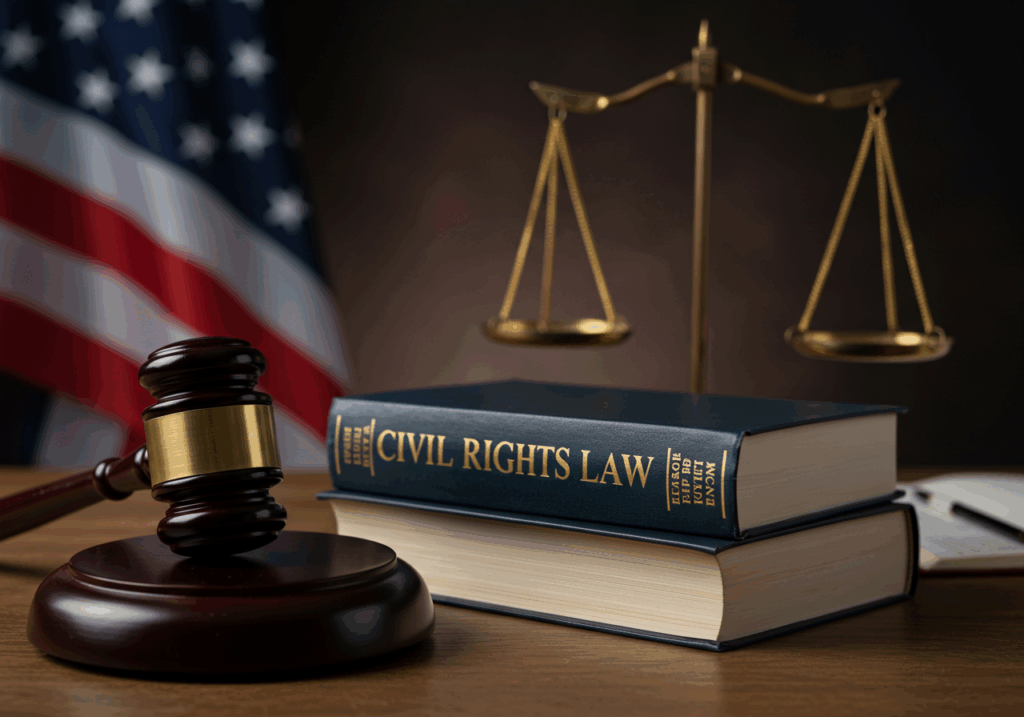
In a just society, every individual is entitled to fundamental civil rights and liberties. However, violations of these rights by government entities, employers, or others can occur, leading to profound personal and societal harm. When your constitutional freedoms are threatened or violated, a dedicated civil rights lawyer stands as your unwavering advocate, fighting for justice and protecting your fundamental rights against discrimination, abuse, and inequality.
Understanding Civil Rights Law
Civil rights law is a broad and vital area focused on protecting the freedoms and rights guaranteed to individuals by the U.S. Constitution and federal and state statutes. These rights are often enshrined in amendments like the First Amendment (freedom of speech, religion), Fourth Amendment (protection against unreasonable searches), Eighth Amendment (cruel and unusual punishment), and the Fourteenth Amendment (equal protection, due process). Key federal statutes include the Civil Rights Act of 1964 and the Americans with Disabilities Act (ADA).
A civil rights lawyer handles cases involving:
- Police Misconduct: Claims of excessive force, unlawful arrest, false imprisonment, racial profiling, or other abuses by law enforcement.
- Discrimination: Fighting against discrimination based on race, color, national origin, religion, sex, sexual orientation, gender identity, age, or disability in employment, housing, public accommodations, and education.
- First Amendment Rights: Protecting freedom of speech, assembly, religion, and the press.
- Prisoner Rights: Advocating for humane treatment, adequate medical care, and protection from abuse for incarcerated individuals.
- Voting Rights: Challenging laws or practices that suppress or disenfranchise voters.
- Fair Housing: Addressing discrimination in the sale or rental of housing.
- Education Rights: Ensuring equal access to education and challenging discriminatory practices in schools.
- Due Process Violations: Protecting individuals’ rights to fair legal proceedings and governmental action.
Why Expert Civil Rights Advocacy is Essential

Civil rights cases are often complex, emotionally charged, and challenging, frequently pitting individuals against powerful institutions. They require a deep understanding of constitutional law, evidentiary rules, and trial advocacy. An experienced civil rights lawyer is crucial for navigating these intricate legal battles.
For example, if an employee experiences severe workplace harassment based on their religion, a civil rights attorney would invoke Title VII of the Civil Rights Act of 1964 to pursue remedies against the employer.
How a Civil Rights Lawyer Supports Your Case
Your civil rights attorney will provide comprehensive legal support:
- Investigation: Meticulously gathering evidence, including police reports, employment records, witness statements, and video footage.
- Legal Analysis: Applying complex constitutional and statutory law to the facts of your case.
- Litigation: Preparing and filing lawsuits, representing you in court, including motions, discovery, trial, and appeals. This can involve seeking injunctive relief (to stop discriminatory practices) or monetary damages.
- Negotiation: Seeking settlements that provide fair compensation and systemic change where appropriate.
- Public Advocacy: Sometimes engaging in public advocacy to highlight systemic issues and press for broader reforms.
Our mission is not only to achieve justice for individual clients but also to uphold the fundamental principles of equality and liberty for all.
If you believe your civil rights have been violated, do not remain silent. Contact our experienced civil rights lawyers today for a free, confidential consultation. We are dedicated to fighting for your constitutional freedoms, challenging injustice, and holding those who violate your rights accountable.
*Disclaimer: The information provided in this article is for general informational purposes only and does not constitute legal advice. No attorney-client relationship is formed by reading this content. You should consult with a qualified legal professional for advice regarding your individual situation.*
